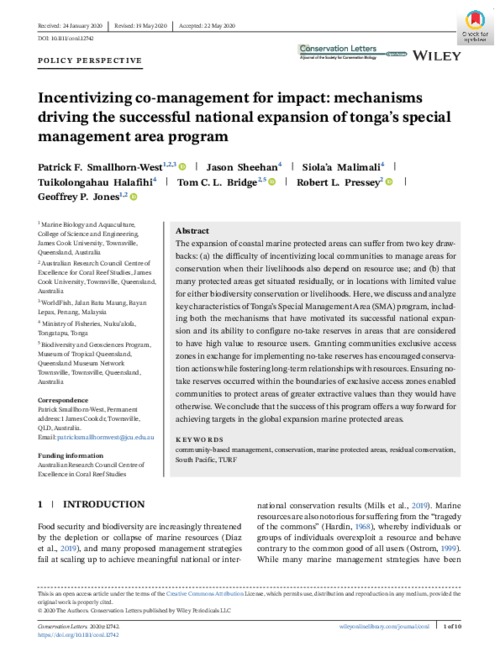Incentivizing co-management for impact: mechanisms driving the successful national expansion of tonga’s special management area program

The expansion of coastal marine protected areas can suffer from two key drawbacks: (a) the difficulty of incentivizing local communities to manage areas for conservation when their livelihoods also depend on resource use; and (b) that many protected areas get situated residually, or in locations with limited value for either biodiversity conservation or livelihoods. Here, we discuss and analyze key characteristics of Tonga’s Special Management Area (SMA) program, including both the mechanisms that have motivated its successful national expansion and its ability to configure no-take reserves in areas that are considered to have high value to resource users. Granting communities exclusive access zones in exchange for implementing no-take reserves has encouraged conservation actions while fostering long-term relationships with resources. Ensuring notake reserves occurred within the boundaries of exclusive access zones enabled communities to protect areas of greater extractive values than they would have otherwise.We conclude that the success of this program offers a way forward for achieving targets in the global expansion marine protected areas.
Permalink
Date Available
Type
Publisher
Countries
ISSN
1755-263X
Copyright
CC-BY-4.0
Research Themes
Topics
Language